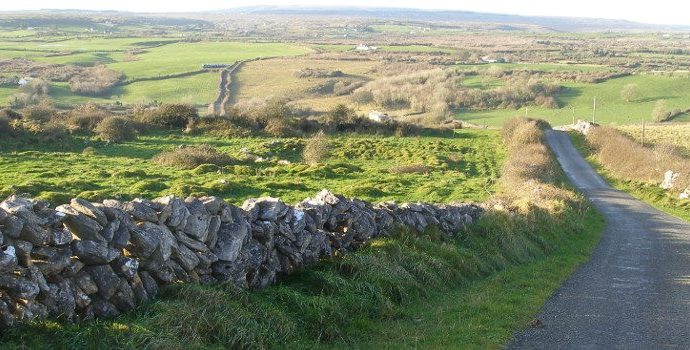Rural Development Council Report March 2022

TAMS
- TAMS Tranche 25 opened on Jan 15th and will close on April 8th.
- To keep pace with rising costs, IFA Rural Development Committee continued to lobby to repeat the reference costs review.
- At a Farmers Charter of Rights meeting in December, the department confirmed that the review of the TAMS reference costs for grant-aided work would be finalised by mid-December, however, it was unlikely the revised costings would be implemented for Tranche 25.
- It is scheduled to be implemented for Tranche 26, which is due to open on April 9th.
- IFA continue to lobby to ensure that 100% of valid applications are approved in each tranche.
- Tranche 24 applications are due to be approved in the coming weeks. IFA are insisting that 100% of valid applications are approved.
- To date, 47,552 approvals have been issued
- Payments of €328.56m have been paid out to 25,884 farmers to date. A further 1,412 farmers have lodged payment claims.
- Average weekly payments range between €1.2- €1.4 million.
- The revised TAMS Budget to include the CAP Transitional period of 2021 and 2022 is €523.81m
- When the carryover allocation from TAMS 1 is taken into account, €340m has been spent out of the RDP allocation of €523.81m.
BPS/ANC Schemes
- 122,391 out of 122,618 have received the full 2021 BPS payment. IFA are working on some outstanding cases.
- BPS and ANC 2022 is currently open for applications and closes on Monday 16th May
GLAS
- At the end of 2020, 36,000 farmers completed their GLAS 1 & 2 contracts and were given the option to extend their contract to include 2021. At the end of 2021 a further 12,000 farmers participating in GLAS 3 will finish their contracts. All GLAS participants have been given the option to extend their contracts for 2022.
- GLAS advance payments (85%) commenced in the 2nd week of November with the balancing 15% payment due this year. Over 44,000 farmers received their advance GLAS payment, totalling €156m.
REAP
- Almost 11,000 applications for the REAP scheme were received in 2021, with 4,889 farmers approved to participate
- There are currently 3,740 active participants on the scheme
- Payments under year one of the REAP scheme began to be issued in mid-December. €10m expected to be issued to participating farmers, with payments continuing on a regular basis.
Agri-Environment Training Scheme
- One day course (6 hours) for farmers up to the end of June 2022- €156 for the day
- ½ day delivered on farm and ½ day off farm
- Voluntary training scheme- open to all farmers to improve their knowledge of agri-environment initiatives and farm safety.
- Applications set to open in the coming weeks.
- Course will provide:
- Update on environmental issues and developments at EU & National level
- Lessons from GLAS participation- info on individual commitments and issues arising. Actions to be viewed on farm
- Key ecological concepts e.g., preservation of Natura 2000 sites & bird habitats
- Intro. to results based agri-environmental measures and payments including use of scorecards
- Information on farm health & safety standards
CAP Reform
- DAFM issued Draft version of Ireland CAP Strategic Plan Nov 8th.
- It was open for submissions until Dec 8th, IFA made a detailed submission
- An updated draft version of the CAP Strategic Plans was submitted by DAFM to Commission on Dec 31st 2021. This latest draft version is currently available to the public.
- New agreement will commence on Jan 1st 2023
Proposed New Agri-Environment Scheme (AECM)
- A new Agri-environment and climate measure (AECM) will replace the current GLAS scheme. It will consist of two elements:
Cooperation Project option:
- available to farmers in 8 zones which have been defined as high priority geographical areas (see map below)
- Farmers will work with a Local Cooperation Project Team, who will assist in the implementation of the scheme at local level.
- It will build on the current EIP’s – one contract
- Average payments are expected to be in the region of €7,400 with the potential for a maximum of €10,500.
- There are approx. 32,000 farmers in the areas identified under the co-operative option
- Expected uptake under the AECM Co-Operation is estimated to be 20,000 farmers over a number of tranches.
General option:
- Available nationally to farmers not in the Co-operative Model areas
- This will consist of farm level actions including results-based measures.
- Average payments are expected to be in the region of €5,000 per annum over the five-year period of the scheme with the potential to reach a maximum of €7,300.
- Expected uptake is estimated to be 30,000 farmers over a number of tranches.
IFA Comments on the AECM
- The payment rate of €10,500 per farmer must not be limited to 20,000 farmers in the co-operative areas identified by the Dept and it cannot include non-productive investments required as part of the scheme
- The scheme will only support 50,000 farmers – not sufficient to meet likely demand demand based on current number participating in GLAS and the number who applied for REAP and will will possibly exclude thousands of farmers
- Opening of Scheme on a Tranche basis will lead to a gap between completing GLAS and commencement of AECM. To avoid a gap between completion of GLAS and commencing the new AECM, IFA are insisting that the scheme is opened to all participants in 2023 or if not GLAS 3 must rolled over for farmers who are not accepted in the first tranche.
- The design of the Co-op aspect of the scheme is likely to lead to leakage of funds to administrative costs. Funding for the Local Project Team involved in the running of the co-operative option part of the scheme must not come from CAP and leakage of funds must not be allowed
- The cooperative model and the general option are to include four results-based measures. Results-based measures must be realistic and suitable for all sectors, include a large list of options and provide for simple scoring which is easily defined. They must also be practical and achievable. There are currently four proposed results-based actions: commonage, low input grassland, low input peat grassland and protection of rare breeds.
- Farmers in the cooperative areas must be given the option to participate in either the General option or the Cooperative option.
- It is critical that the scheme recognises existing features on farms and continues to enhance earlier scheme actions.
AECM Co-Operation Option- Identified Zones
Upcoming Events
- Meeting with DAFM on AECM and TAMS – March 2022
- Committee Meeting – March 2022



